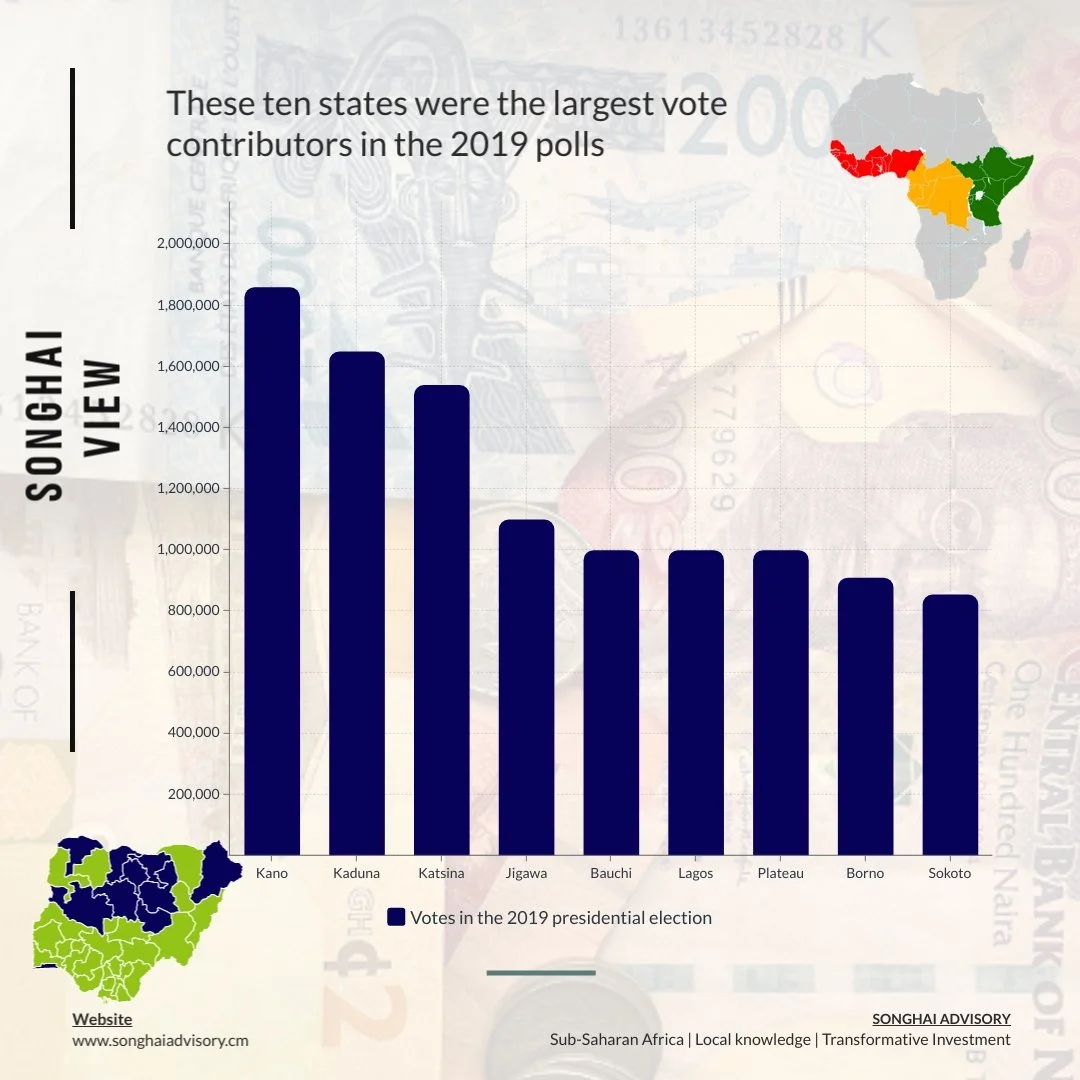Key figures, Nigeria 2023 election: Nasir El-Rufai
Nigeria’s ruling All Progressives Congress (APC) will hold its presidential primary on 30 May. The incumbent Muhammadu Buhari from northern Katsina is serving out his final term. Now, his party will likely choose a presidential candidate from the south based on a ‘zoning’ principle that the north and south take turns to hold power every eight years. One politician who is being touted as a running mate to a southern flagbearer is Governor Nasir El-Rufai of northern Kaduna. But even if he is not eventually on the ballot, he will play a key role in the 2023 election because of his current position and because of his relationship with Buhari.
Significance – President’s protégé
El-Rufai’s Kaduna is the state that produced the second highest number of votes in the 2019 presidential election. It is also one of the three dominant northwestern states that accounted for around 20% of all votes cast in that election.[1]
The ruling APC will be looking to tap into this political capital and so El-Rufai is well placed to be selected as the party’s vice-presidential candidate. Being Buhari’s protégé will also be an advantage for the Kaduna state governor. He was with Buhari in the defunct Congress for Progress Change, rode on the president’s popularity in the northwest to become governor in 2015 and has regained a foothold in Buhari’s inner circle following the death of his rival and the president’s chief of staff Abba Kyari in 2020.
Two potential presidential candidates that El-Rufai is being linked with are Vice President Yemi Osinbajo and Transport Minister Rotimi Amaechi – and both politicians have a relatively weak political base. Amaechi comes from southern Rivers state that is controlled by the opposition People’s Democratic Party (PDP), while Osinbajo leaned on ex-Lagos governor Bola Tinubu to emerge as vice president in 2015. Osinbajo now appears isolated in his home state Lagos because Tinubu, who is the foremost APC leader there, is also vying to be the presidential candidate (See: Nigeria’s ruling party prepares to choose Buhari’s successor). This dynamic illustrates the predominance of northern politicians in the APC, and it shows why the party might choose to have a strong northern figure such as El-Rufai on the ballot in order to prop up a less prominent southern flagbearer.
El-Rufai’s reputation as a reformer is significant given his prospects for 2023. For example, he led major privatisation programmes as the inaugural Bureau of Public Enterprises Director General (1999-2003). And last year, he called for constitutional changes to decentralise the federal police, transfer the control of oil resources to states and allow states to organise their own rail system independent of the obsolete one run by the federal monopoly. (See: Nigeria's pre-election constitutional reform). These proposals are exceptional considering he is part of a northern political establishment that is deeply conservative regarding devolution. Even so, his methods have been belligerent and he is widely viewed (especially in the country’s south) as intolerant. In 2019, he claimed foreign election observers in Nigeria planned to interfere with the presidential election and said they would leave the country ‘in body bags’. He also declared labour leaders wanted last year for ‘economic sabotage and attacks on public infrastructure’ after they organised a strike in his state.
Outlook – Succession
The ruling APC named a new set of party leaders on 26 March despite infighting. (See Election analysis: Nigeria’s ruling party convention and President Buhari’s succession plan). There were no elections and it was Buhari who chose the party chair. The selection process affirmed his supremacy within the party and set the tone for the upcoming presidential primary next month. Tension between factions is simmering as rivals plot to secure their interests in the next administration. The faction that gains the upper hand in all these will include El-Rufai given the size of Kaduna’s electorate and given his relationship with the president.
—
We are an African-owned and managed firm delivering local knowledge supporting transformative and sustainable strategic decision-making over the past decade. Do get in touch if you require assistance: advisory@songhaiadvisory.com
—
[1] Nigeria has 36 states and a federal capital. The three dominant northwestern states are Kano, Katsina and Kaduna.
